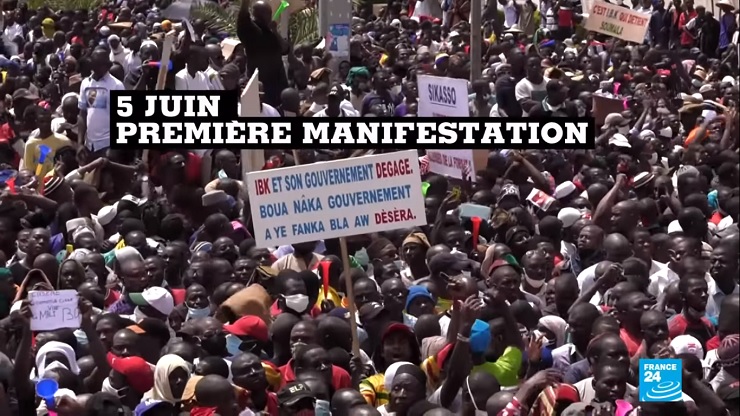
After three months of protests calling for his resignation, President Ibrahim Boubacar Keita (IBK) of Mali finally stepped down Tuesday August 18, 2020. He, however, “announced his immediate resignation on state television late Tuesday, hours after he and the Prime Minister were arrested by mutinous soldiers in a coup”.
The African Union (AU) Chairman, Moussa Farki, immediately took to social media to condemn the coup d’état.
1/3:Je condamne énergiquement l'arrestation du President Ibrahim Boubacar Keita, le Premier Ministre et autres membres du Gouvernement maliens et appelle à leur libération immédiate. #Mali
— Moussa Faki Mahamat (@AUC_MoussaFaki) August 18, 2020
Other actors have also condemned the coup d’état, notably France, the former colonial master whose influence is dominant in explanations of Mali’s security predicament.
Protesters were asking for IBK’s departure over his handling of Mali’s security crisis, rampant corruption in his government and worsening hardship. They also accuse IBK of being France’s governor for Mali.
Militaries in conflict settings are known to care for social and political order and often take protests as a signal for action. The coup was, thus, the result of a direct instruction from the population to its army to remove the President.
Albeit, there have also been civil-military tensions in Mali. At the forefront of combating the terrorist insurgency ripping the country apart, Mali’s troops have gone for months without pay and officials within the government have embezzled funds destined for purchasing vital equipment to face the insurgents.
Following the coup d’état, the political opposition announced a transition period. It presents a unique opportunity for Malians to forge a more independent state and tackle the problem of the misuse of Mali’s natural resources at the base of the Jihadist insurgency ravaging the country.
Leave a Reply